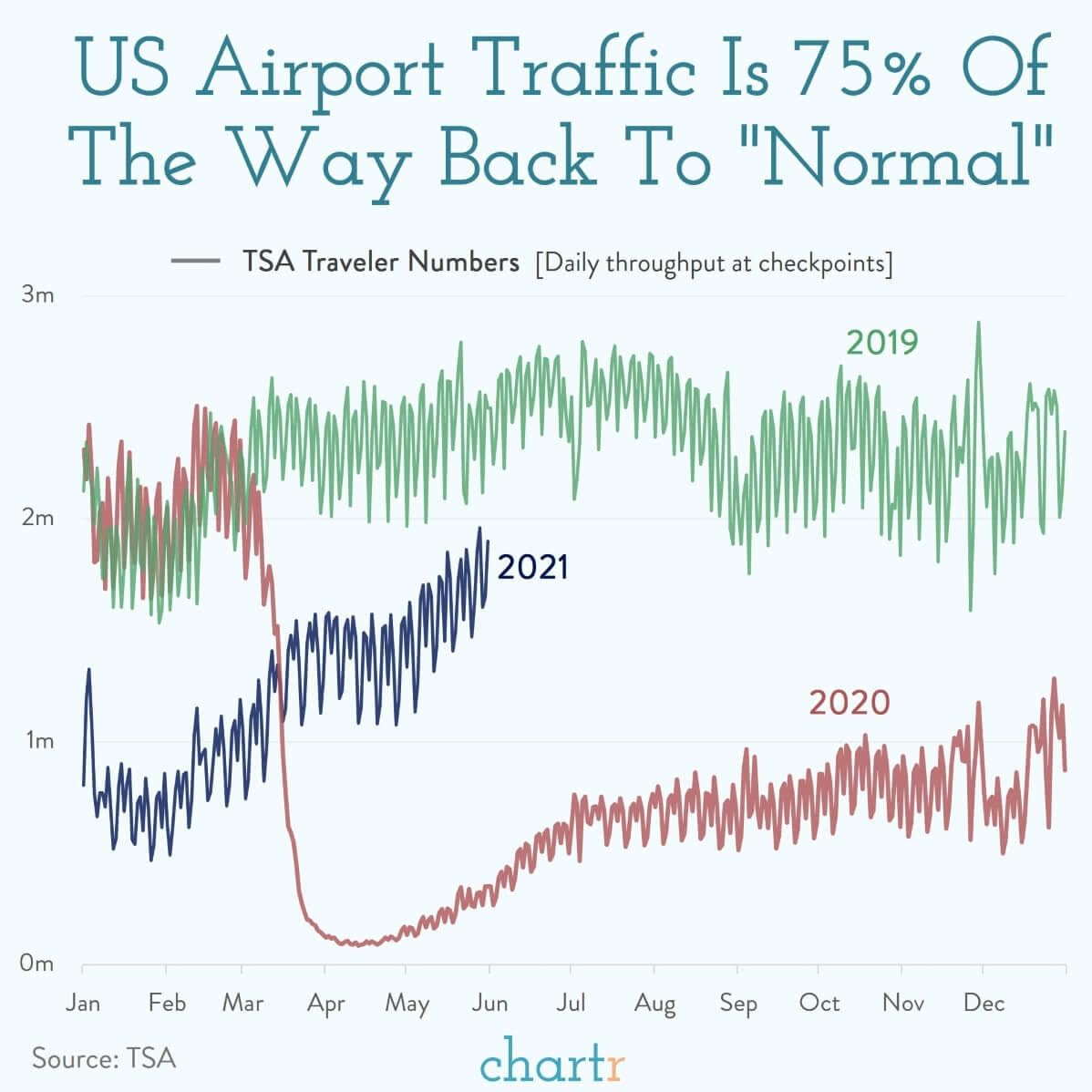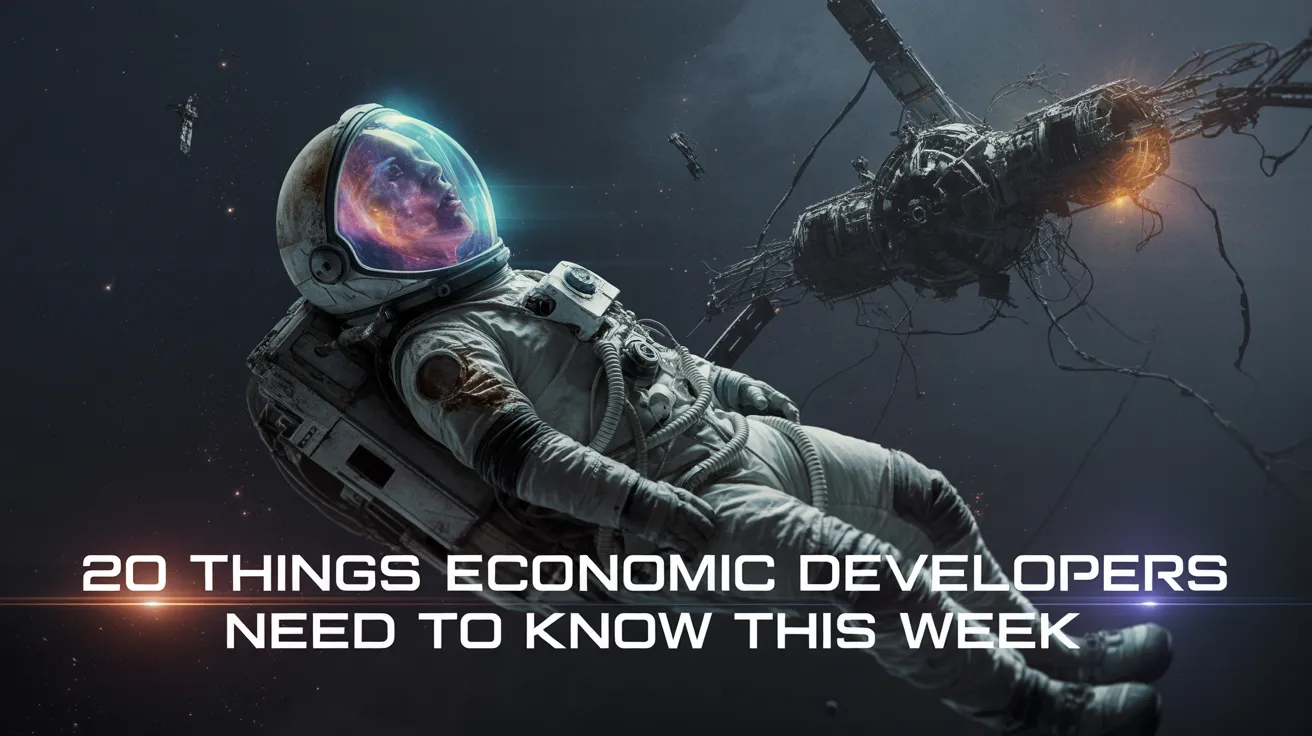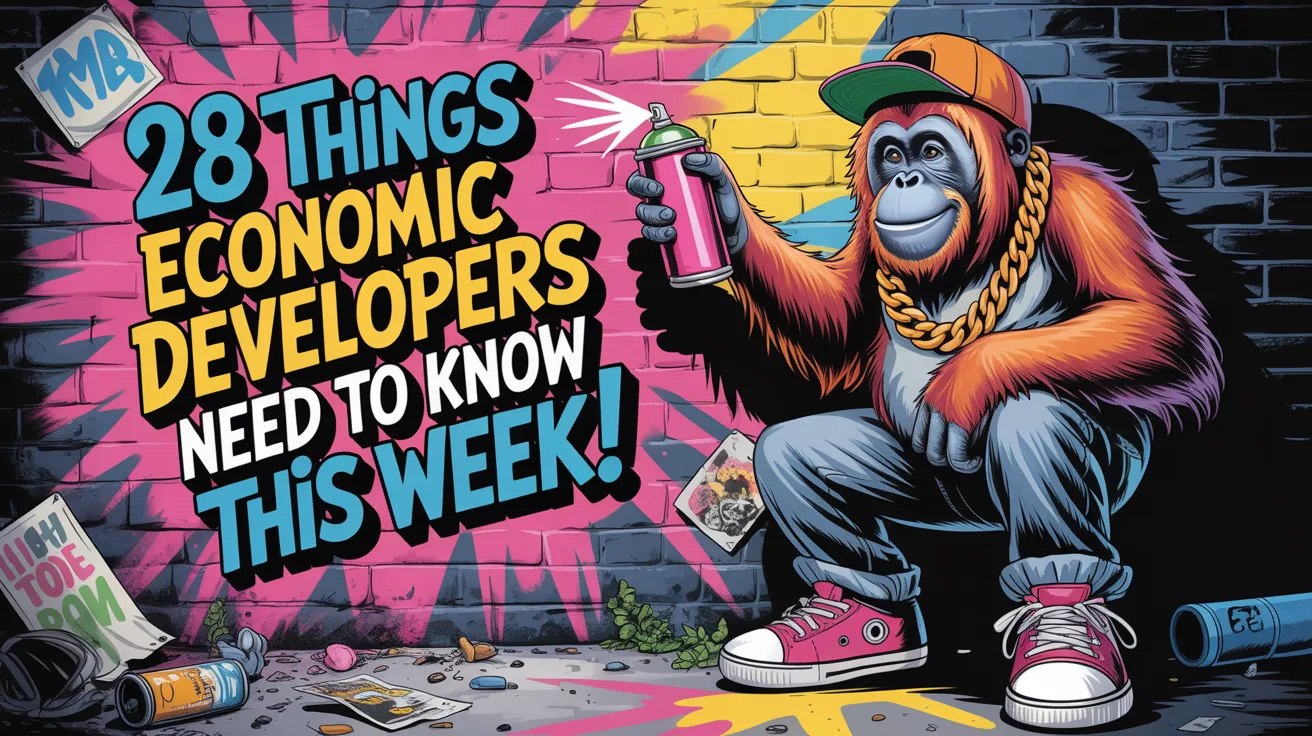Assorted Links Friday
How to navigate the 'Great Reset', how COVID has changed economics and inspired a new generation of entrepreneurs, give yourself the freedom to be creative, and more.

Table of Contents
Good morning econ dev fans and practioners. Welcome to another edition of Assorted Links. Let's dive right in:
The National Center for Economic Gardening has had a surge of new engagements recently. We are looking for additional GIS and digital marketing specialists for the national team. The work is sub-contract and based on the amount of demand we experience at any one time. Sub-contractors must be certified in Economic Gardening (however, certification does not guarantee sub-contractor work). Contact Chris Gibbons.
Air travel is back. Kinda.

What’s the point of the office again?: The office is primarily a social space, not a productive one. Most humans aren’t solitary, like snow leopards, but more like birds. The office provides a place to ruffle plumage and establish a pecking order.
Inside Operation Warp Speed: A new model for industrial policy.
Though OWS was created to accelerate the development, manufacturing, and distribution of vaccines, this same institutional model could be used for other technological and manufacturing challenges facing the United States. Conventional fiscal or monetary policy is no longer working effectively to foster domestic productivity growth or to prevent deindustrialization. OWS‑type interventions offer an entirely new set of economic policies that could be a blueprint for industrial strategy going forward. OWS shows how the United States can reimagine and leapfrog existing manufacturing paradigms to dominate the technologies of the future. The model offers new ways to bolster economic security and ultimately national security as well.
The Microwave Economy: We’ve overwhelmingly used our wealth to make the world cheaper instead of more beautiful, more functional instead of more meaningful. We don’t value what we can’t quantify, so our intuitions are given short shrift. In the name of progress, we belittle the things we know but can’t articulate. The result is an economy that prizes function over form and calls human nature “irrational”—one that over-applies rationality and undervalues the needs of the soul.
The End IS Near. No, Seriously: All epidemics end, vaccine or no vaccine. The Spanish Flu ended. The Black Death ended.
Counterintuitive though it may seem, part of furniture giant IKEA’s success stems from its policy requiring its customers to build its products.
How to navigate the 'Great Reset’: The closest parallel is the post-World War II era, which led to massive economic and societal changes.
The capitalist culture that built America: Since the early 19th century, the firm of Brown Brothers defined the distinctive American mix of financial power and public service. Its example can still instruct us.
Hacker lexicon: What is a supply chain attack?
Are we better off?: Average Americans ARE better off than they were at the start of the neoliberal age. Don’t let anyone tell you living standards have gone down. But by the same token, Americans aren’t as MUCH better off as they could be, given how much the country has grown economically.
Americans don’t want to return to low wage jobs: The majority of the jobs that aren’t back to prepandemic work force levels are very low-income jobs; they are what the U.S. Private Sector Job Quality Index calls low-quality jobs.
The COVID trauma has changed economics - maybe forever: Policymakers learned the lessons of 2008 and deployed a wider set of tools to help repair the damage from Covid. They know how to create a recovery, but can they manage the boom?
How to Fix America: Take a road trip from New York to California to see infrastructure projects with the potential to make cities more livable and equitable.
The $10 billion bright spot in the battered world of office real estate: Investors are betting on laboratory space as vaccines fuel the economic rebound.
How COVID inspired a new generation of entrepreneurs: The pandemic forced everyone to adopt new technology and rethink their jobs, spurring our economy to lean in to independent work.
Building a home in the US has never been more expensive: From lumber to paint to concrete, the cost of almost every single item that goes into building a house in the U.S. is soaring. In some cases, the price increases have topped 100% since the pandemic began.
The return of supersonic jets: The airline said Thursday that it plans to buy 15 jets from Boom Supersonic with an option for 35 more once the start-up company designs a plane that flies faster than the speed of sound while meeting safety and environmental standards.
Other highlights from the week:
- Thursday's Assorted Links - We must be builders, old golf courses are turning into industrial space, creative destruction, and so much more.
- Wednesday's Assorted Links - The southwest is America’s new factory hub, how the world ran out of everything, a new podcast episode, and more.
- Economic Development and Developers in the News - Econ dev news from 26 states and Canada. June 2, 2021 edition.
- This week's podcast:
Econ Dev Show Newsletter
Join the newsletter to receive the latest updates in your inbox.


